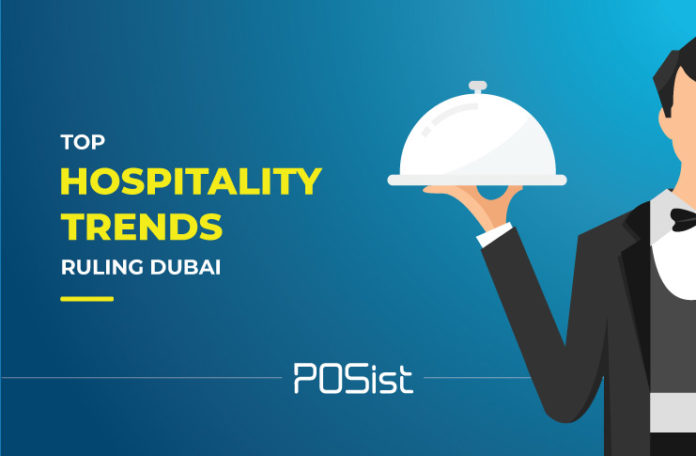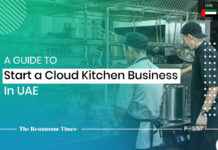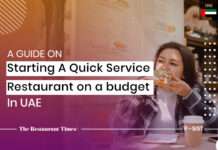With Dubai Expo 2020, the opening of Warner Bros World and Dubai’s first Theme Park, the Emirate is progressing well with its diversification plan and is attracting tourists from all over the world. With so many developments in place already, the trends that are guiding the hospitality sector are coming into full force. These hospitality industry trends are not the cause or effect of a single route phenomenon but various socio-economic parameters that are coming together to define the industry in Dubai.
Dubai Tourism had announced that its hotel inventory is set to increase by 11% in the coming two years and 132,000 rooms are expected to be operational in the Emirate by the end of 2019. With more and more tourists flying in, Dubai entering the list of top 10 destinations to visit and the government focusing on the hospitality industry more than ever, even restaurants are not far behind in the space and are growing at a tremendous pace.
Dubai has close to 260 people per restaurant only, not due to the shortage of people visiting the emirate but because of the increase in the number of restaurants. In such a dynamic space, you may be wondering what the key trends which are driving the growth of the hospitality industry in the emirate are. Here we have for you a list of top 10 hospitality trends from different segments which according to us are driving the growth of the hospitality industry in Dubai.
Top Trends In Hospitality Industry In Dubai
Be they social, economic or technological, changing attitudes and perceptions create trends which guide an industry. Same is the case with the Hospitality Industry in Dubai. Various socio-cultural, economic and technological trends are together reshaping the industry.
Social Trends Driving The Hospitality Industry In Dubai
Social trends include a shift in the perception of people due to lifestyle changes caused by interaction with various human ideas, like globalization. Top Social Trends driving the hospitality industry in Dubai this 2018 are:
1. Health Food
The world has been going the healthy route, and the middle east is no exception. The 2018 Gulfood Global Outlook Report Health and Wellness Trends cites an increase in demand for organic products, healthy food, label scrutiny, and environment-friendly food. Health and wellness are also expected to grow at 7% in the Middle East and North Africa as opposed to 3% globally in the next five years.
2. Home Grown Concepts
Dubai has always been a tourist destination and so has had a good level of international brand penetration, but of late, the trend has been shifting. More and more homegrown brands are developing and entering the hospitality industry with a focus on high quality. This is also being read as a sign of maturing market and an increase in the value of home foods and home-based concepts which diners are now increasingly looking for.
3. Regional Flavours
Dubai has seen a rise and fall of interest in different cuisines and the latest trend to catch the hospitality industry is modern and traditional Middle Eastern and North African. With more homegrown concepts, regional flavors are becoming a preferred choice in Dubai. An infusion of more Arabian and Egyptian flavors in European and Asian cuisines is expected out of 2018 giving the emirate its own unique fusion flavor.
4. Takeaway Options
With the city growing, residents getting busier and the internet becoming more than a common feature, takeaways and home deliveries are hitting the trend list. An exponential rise in food and delivery options which save both time and money. Food delivery apps are on the rise and practical go-to foods like meal-plans are seeing greater acceptance in 2018.
Economic Trends Driving The Hospitality Industry
Economic trends arise not simply because of a change in the economic status of people but also because of a change in the spending habits and attitude of people. This 2018, the major economic trends impacting the hospitality industry in Dubai are:-
1. Pop-Ups and Fast Casuals
Tourists visiting Dubai are no longer class-bound. In fact, the tourist destination is seeing more and the number of families and middle-class tourists coming in. Thus pop-up restaurants and fast casuals are gaining traction and are on the rise. 2018 has seen this trend take over the hospitality industry of Dubai.
2. The Hotel-Restaurant Deal
The next big trend to have hit the hospitality industry in 2018 is independent restaurants and hotels working together. To give a more diverse experience to their customers, both hotels and restaurants have decided to work together in a setting where restaurants can bring their business acumen regarding latest F&B trends on the table and the hotel can provide a world-class experience. This trend has its own deep economic consequences opening up new opportunities in the hospitality sector and reducing the final brunt of costs involved. Due to this tie-up, the Dubai hospitality industry is growing at a high pace.
3. Mid-Priced Hotels
A mid-priced solution is not just getting popular in the restaurant segment of the hospitality industry but the hotel space as well. With the rise of tourists belonging to all social classes and an even greater expected increase, hotels which are luxurious but not as expensive are trending in 2018. These give a comfortable and practical solution to the expensive nature of tourist stay and allow anyone and everyone to be able to visit the Emirate. This trend has majorly manifested itself in terms of service apartments, mid-priced 3-4 star hotels and Airbnb’s.
Technological Trends Driving The Hospitality Industry
Technology is the way the world is going and more so given the way Dubai plans to expand. Thus, major technological changes and acceptance of various upcoming features in restaurant technology and hotel technology are expected out of Dubai’s hospitality industry. Here are the key technology trends that have been driving the industry so far in 2018:-
1. Customer Relations Management
With the diversification plan well in place, the hospitality industry has been expanding in all directions. A direct result of this has been an increase in the supply of hotels and restaurants, but a not as pacy an increase in their demand as tourism has increased but not at the pace of the hospitality industry. Because of this if there is a lack of new customers, the industry is moving its focus to the present customer and arts of retaining them. As a result, Customer Relations Management or CRM Technology is taking the hospitality industry forward by its reigns. The need to retain current customers is manifesting itself in technology as innovations on POS softwares have started including CRM tools.
Gathering customer feedback digitally and feeding it directly to your POS to determine customer experience, creating a database of all customers, their orders, preferences, the amount they usually spend and even their special days to design discounts and schemes specific to them and creating loyalty programmes are all trends that Dubai hospitality industry should expect to see more of. To know how you can implement these changes in your restaurant, read 7 Golden Rules of Customer Retention in Restaurants.
2. Use Of POS Technology
Investment in point of sales software is no longer a trend that only restaurants follow, hotels are jumping on the wagon to ease operations, have better data, be able to use that data and manage different fronts as well. A restaurant billing software for hotels allows the hotel to track food sales at every possible outlet, including room service, bill it to one room without any hassle, give combined and separate reports and even a detailed analysis of every sale and customer. This integration of technology has been the biggest hospitality trend in 2018 so far.
3. Internet Penetration
According to a trend report by Christopher Lund at Colliers International in Dubai, 68% of guests under 35 say they would not return to a property with poor internet access. The Internet is a huge part of the hospitality industry and given the younger nature of tourist demographic; it is almost a necessity. This combined with the fact that interconnectivity is a must even in the hotel room itself where an average guest is using at least three devices per room, an increase in bandwidth is a must. According to Lund, “To meet the demand, the average 300 room hotel in the emirate will need to spend around 2.4 million Dirhams on upgrading their bandwidth over five years just to maintain quality levels. Apart from that chatbots will perform 70% of B2C interactions within Middle Eastern countries by 2020. Customers are expecting smart, swift and insightful information transactions”.
Not just Dubai but the entire middle east is a geography that can be defined by hospitality alone. Thus the trends in the area are not just more volatile but also fast changing with a huge impact on world hospitality industry. These are the trends that 2018 has seen so far and is expecting to see grow further.

















